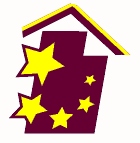This framework outlines a pathway for the Code Council to help communities reach their energy efficiency and resiliency goals. The Code Council will build on the International Codes family – the International Energy Conservation Code (IECC), International Residential Code (IRC), and International Green Construction Code (IgCC) – to provide additional building safety resources for communities and their leaders.
The IECC establishes a minimum set of energy requirements and serves as the foundation for state and local building energy codes throughout the U.S. The scope and intent of the forthcoming 2024 IECC and editions moving forward will be updated to reflect the following commitments:
• The IECC will include pathways leading to the achievement of zero energy buildings by 2030.
• The code will continue to be updated on a three-year cycle and each edition will increase efficiency over the prior edition.
• The code may include non-mandatory appendices incorporating energy efficiency and greenhouse gas reduction resources including for electric vehicle charging, electrification, and embodied carbon.
The Code Council’s Chief Executive Officer Dominic Sims commented, “Moving forward, the development process for the IECC will use the Code Council’s Consensus Procedures. This will allow for more in-depth scientific and economic deliberations, quicker progress to meeting public and private sector goals, and the development of a broader consensus that will support wider application and adoption.
The Code Council has a long and respected history in administering a standards development process and is accredited by the American National Standards Institute (ANSI) as a standards developing organization (SDO) that adheres to ANSI’s Essential Requirements for openness, balance, consensus, and due process.”
The IECC Development Committees (Residential and Commercial) will be appointed by the Code Council’s Board of Directors and will represent a variety of perspectives and building science expertise. The ICC’s Board consists of 18 government code officials. The IECC Committees will include representatives from nine interest categories, including diverse representation within those categories.
The development committees will be informed by insight from a newly established Energy and Carbon Advisory Council made up of public and private sector leaders.
Recognizing the important role of governments in the adoption and use of the IECC, the Code Council states that “the framework ensures that government officials continue to have a leading voice.” One-third of committee membership and the voting committee chairs will represent the government regulatory category.
Committee membership will be determined through an open nominations process with no seats reserved for organizations. Committee membership will represent a diversity of climate zones, organization sizes, businesses, and jurisdictions, and a range of experience in building types and energy efficiency strategies.
With the importance of the new code development committees, RESNET is advocating to the Code Council the appointment of members of the HERS® Industry. HERS Raters are well qualified to serve. They are well-grounded in building science, practical experience in verification of energy codes, and do not have a vested interest in any building product.
RESNET Executive Director Steve Baden commented, “The recent decision of ICC to pursue a consensus standard development process for future editions of the IECC provides the HERS industry a great opportunity to be engaged and participate in shaping future editions of the IECC. RESNET welcomes the opportunity to work with ICC and other participants to ensure future editions of the IECC are developed using a consensus-based process that is fair, open, transparent, and based upon science. RESNET also looks forward to suggesting members of the HERS industry to serve as volunteers on various committees that will be formed. Based on the solid foundation HERS Raters have in the building sciences and model energy codes, HERS Raters have much to contribute to ensuring the IECC continues to be the premiere model energy code internationally.”
To download the ICC pathway, visit www.iccsafe.org/energy.
Latest News & Upcoming Events
US energy landscape is changing. Here’s what it means for the Beehive State.
Fourteen researchers from the University of Utah, BYU and the University of Idaho published a comprehensive renewable energy report showing that the Beehive State has the potential to be a world leader in renewable energy production, storage, and manufacturing. It...
Spring into Action!
facebookinstagramtwitterlinkedinLet the beginning of spring cleaning commence! As Spring arrives, it's time to go through and get rid of things we no longer need and take care of any necessary home repairs or renovations. This season is also an ideal time to focus on...
Home Office Tips
I like to wrap myself in a blanket when I work from home. You could say I now work undercover. Nowadays, many people work from home rather than commute to the office, which increases your home energy usage. Consider smart plugs and power strips to control power usage...
Fill Those Leaks!
Is Your Home Drafty? Find those leaks and seal them up! Air sealing is one of the easiest ways to improve the comfort of your home. You can find air leaks in your home yourself by: 1).Inspecting common areas, like utility cut-throughs, gaps around chimneys and...
Tax Credits for Tax Season
TAX SEASON IS HERE! Do you know about all of the tax credits you could be eligible for? A home energy audit provides personalized guidance for upgrading to clean technology, potentially allowing for a 30% tax credit up to $150. The Inflation Reduction Act (IRA) signed...
Kitchen Tips
A kitchen is filled with inspiration, love, and fun. It's a good place to de-stress and grab a snack after school or work. The time spent in the kitchen means it's essential to be energy efficient. You can purchase energy-efficient cookware and appliances to boost...
4 Million HERS Homes and Counting!
RESNET® announces that over 4 million homes in the United States have now been rated with a HERS® Index Score! RESNET Executive Director Steve Baden says, “Reaching four million HERS-rated homes is a significant milestone. Moreover, reaching a million HERS-rated in...






